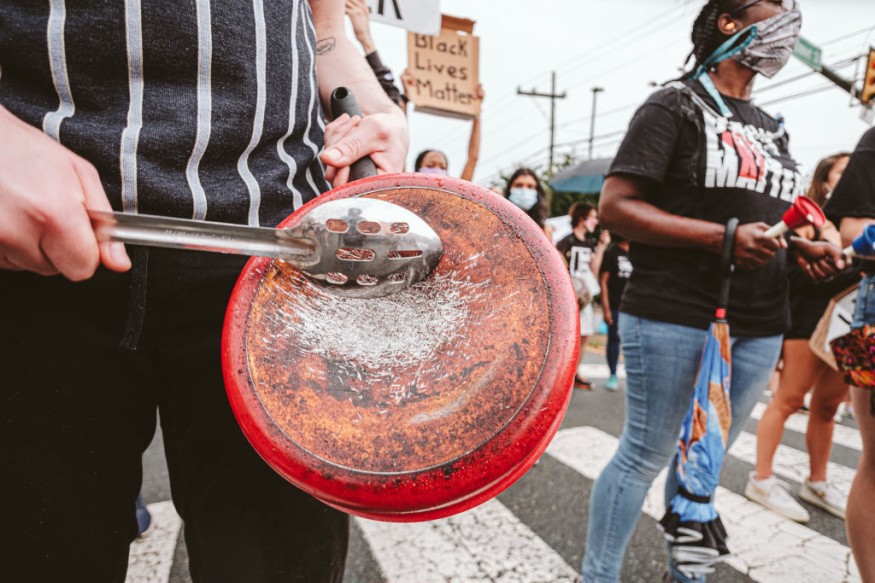If you are a foodie, cooking might be one of your hobbies apart from ordering fast food. Although challenging, for some, it gives them the relaxation they need and break free from stress.
According to Dana-Farber, cooking engages our senses and can activate memories. It further noted that allowing yourself to be immersed in those memories is a therapeutic way of relieving stress and boosting one's mood.
Because of the advancement of technology, cooking has been made easy by different equipment. One of these is the non-stick pan, which might be present in your household.
Non-stick Pan

Reader's Digest shared the benefit of having the equipment as they are easy to use and convenient, alongside promoting a healthy lifestyle because oil is not usually needed when using them.
However, these types of pan are not the epitome of perfection in your kitchen because the pan loses its efficacy. Healthline reported that the material that makes the pan non-stick, also called Teflon, wears out over time, making it less effective.
Taking care of your non-stick pan is a cost-effective way of saving because the longer you have them, the longer you won't have to buy a replacement for it.
To avoid them losing their efficacy, here are things you might be doing to shorten the life of your non-stick pan.
Read also: Kitchen Hinching Could Result in Dangerous Cleaning Techniques
Seasoning
You might be thinking that only dishes need seasoning. Non-stick pans need them too, especially before the first use.
President and CEO of a cookware brand, Daniel Winer, noted in an interview with Reader's Digest that just like every cookware, seasoning it with oil and butter helps.
Eat This Not That added that seasoning would help the pan last for its expected five-year life span.
Placing them in a Dishwasher
Although you want to save time, putting non-stick pans in a dishwasher is a bad idea. The Spruce Eats said that dishwasher detergents are generally harsh for most non-stick pans and other non-stick kitchenware.
Culinary consultant Clare Langan shared with Readers Digest that people should check the manufacturer's cleaning recommendations to avoid deterioration.
Harsh Cleaning
Chef Burt Cho from Katsuya in Hollywood California told Eat This Not That the use of metal scrubber on non-stick pans is a novice mistake. He added that avoiding heavy cleaners and scrubbing hard is good with the non-stick coating on the pan's surface.
Cooking Spray
Lifestyle director of Kitchn Lisa Freedman told Reader's Digest that the cooking spray builds up on the non-stick pan over time that does not burn off during cooking. She added that this gets sticky that can affect your non-stick pan.
Using Metals as Cooking Tools
The Spruce Etas said using metal utensils in your non-stick pan should be stopped. It recommends using wood, silicone, or plastic instead because the Teflon can get damaged easily.
Acidic Foods
According to Eat This Not That, acidic foods accelerate the aging process of the non-stick surface because the acid causes blisters on the pan.
Cooking on high heat
The Spruce Etas emphasized that most non-stick cookware is made for low to medium heat cooking. It said that high temperatures cause blisters and deforming on the pan.
If the high heat cooking cannot be avoided, Reader's Digest suggests that using an enamel, porcelain, or ceramic coated stainless-steel pan can be used instead.
Taking care of your non-stick pan will make you enjoy more delicious food and save money at the same time. Take care of it, so you can use them for as long as you want.



